Online Casino Games for Beginners: How to Play, Win & Avoid Costly Mistakes
Your hands are sweating as you hover over that “Place Bet” button. Real money’s on the line, spinning reels are flashing across your screen, and you’re not entirely sure what just happened or whether you’re doing this right. We’ve all been there-that first time clicking into an online casino feels like stepping onto a spaceship with no instruction manual.
Here’s the thing: most people dive straight in without understanding the basics, and they burn through their money way faster than they should. This guide cuts through the confusion and shows you exactly how to play, what to expect, and how to keep your bankroll alive while you’re figuring things out.
What You Need to Know About Online Casinos

Online casinos work differently than the real ones in Vegas or Atlantic City, though the games themselves are pretty similar. Instead of physical dealers and slot machines you can touch, you’re playing against software-either computer-generated games or live video streams of actual dealers sitting in studios somewhere.
Licensed casinos use something called Random Number Generators to decide what happens next. These are basically super-complex algorithms that spit out results nobody can predict or mess with. Every spin, every card dealt, every dice roll is genuinely random. Reputable sites get their RNG systems checked regularly by independent testing companies to prove they’re not rigged.
The house edge is just a fancy way of saying the casino has a built-in advantage in every game. There’s no getting around it. Slots might give the house anywhere from 2% to 10%, while blackjack can drop below 1% if you actually know what you’re doing. Understanding these numbers helps you pick games where your money won’t evaporate in ten minutes.
Return to Player percentages tell you how much a game pays back over the long haul-like millions and millions of spins. A slot with 96% RTP theoretically gives back $96 for every $100 bet, though your personal session could swing wildly either way. Think of RTP as a guide for comparing games, not a prediction of what’ll happen to you tonight.
Finding a Casino That Won’t Screw You Over
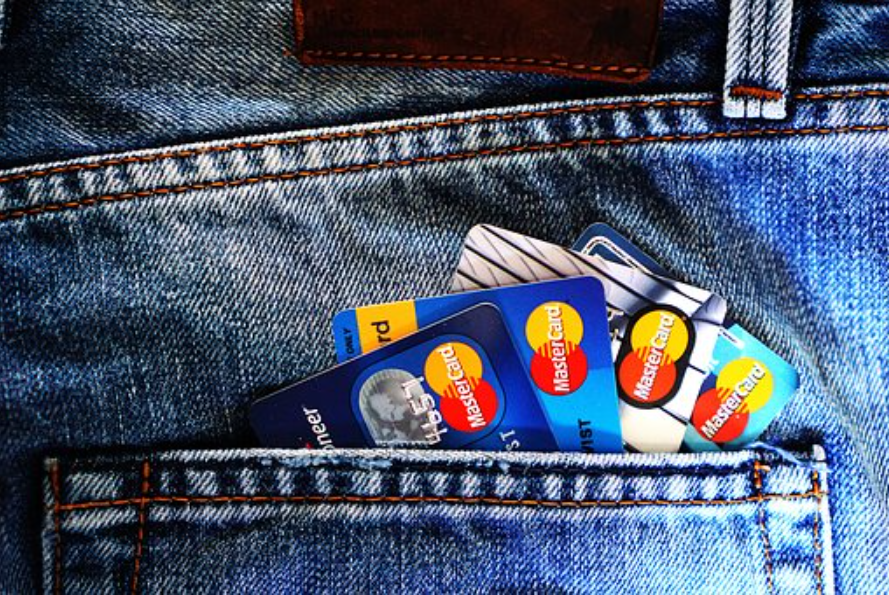
Licensing is everything. Look for casinos regulated by serious authorities like the UK Gambling Commission, Malta Gaming Authority, or Gibraltar. These places enforce actual rules about fairness, security, and treating players right.
Check the bottom of any casino website for their license info. Legit operators show their license numbers clearly and link to the regulator’s website where you can verify everything. If you’re hunting around for more than 30 seconds trying to find licensing details, just leave.
Payment methods tell you a lot. Good casinos offer normal options you recognize-Visa, Mastercard, PayPal, Skrill, bank transfers. When a casino only takes cryptocurrency or some weird payment processor you’ve never heard of, that’s usually a bad sign.
Read the withdrawal rules before you deposit a single dollar. Some casinos pull nonsense like requiring you to bet 60 times your bonus amount before you can cash out, or they create mysterious “verification delays” that stretch on for weeks. Check independent forums where real players talk about their experiences getting money out.
SSL encryption keeps your financial info safe when you’re moving money around. Look for that little padlock icon in your browser’s address bar and make sure the URL starts with “https” instead of “http.” Any casino handling real money without proper encryption is basically begging to get hacked.
Setting Up Your Account and Making That First Deposit

Creating an account takes maybe five minutes but you need to use your real information. Casinos verify your identity before they’ll let you withdraw anything, so don’t get creative with fake details thinking you’ll fix it later. You’ll need your actual name, address, birth date, and contact info.
Age verification isn’t optional. Every legitimate casino requires you to be at least 18 (or 21 in some places). Eventually you’ll need to send them documents like your driver’s license or passport, plus something proving your address like a utility bill.
Welcome bonuses look incredible with those “200% match up to $500!” headlines. But slow down and read the actual terms. That bonus almost definitely has wagering requirements attached-you might need to bet 35 or 40 times the bonus amount before you can withdraw a penny. A $100 bonus with 40x wagering means placing $4,000 worth of bets before cashing out. See how that works?
Start small with your first deposit. Nobody’s making you drop $500 on day one. Try $20 or $50, mess around with some games, see how everything works. You can always add more money later once you’re comfortable with the site and you know it’s legit.
Some casinos let you set deposit limits right when you’re signing up. This caps how much you can deposit per day, week, or month. It’s a good safety net that stops you from doing something stupid when you’re frustrated after losing a few hands.
Slots: Where Everyone Starts

Slots are dead simple-you press spin and hope matching symbols line up. That’s it. No skill required, no strategy to learn. This makes them perfect for beginners, though it also means you have absolutely zero control over what happens.
Paylines are the patterns that create wins. Old-school slots might have just one line straight across the middle. Modern video slots can have 25, 50, or even 243 different ways to win. More paylines mean more chances to hit something each spin, but they also increase your minimum bet.
How much you bet per spin matters more than you’d think. Slots let you fiddle with coin value and how many coins you’re betting per line. Betting the minimum makes your money last longer but keeps your potential wins small. Betting maximum often unlocks special features or jackpots, but it’ll drain your account fast.
Volatility describes a slot’s personality. Low volatility slots give you frequent small wins that keep your balance fairly steady. High volatility slots can eat your money for ages before suddenly hitting you with a massive payout. If you’ve got a small bankroll, stick with low volatility so you don’t go broke in five minutes.
Bonus features like free spins, multipliers, and little mini-games add some excitement and boost your winning chances. Understanding what triggers these helps you pick slots you’ll actually enjoy. Some need specific symbol combinations, others just happen randomly.
Progressive jackpots take a tiny piece of every bet and throw it into one giant prize pool that keeps growing until somebody wins. These can hit millions of dollars, but your odds of winning are basically zero. Only chase progressives with money you’re totally fine losing.
Blackjack: Actually Your Best Bet

Blackjack gives you the best odds in the whole casino if you play smart. There’s this thing called basic strategy-basically the mathematically perfect way to play every hand-that drops the house edge down to about 0.5%.
The goal’s straightforward: get closer to 21 than the dealer without going over. Number cards are worth their number, face cards are worth 10, and aces can be either 1 or 11 depending on what helps you more. You’re not competing with other players, just trying to beat the dealer.
Basic strategy charts lay out exactly what to do in every situation. Hit on 16 when the dealer’s showing 7 or higher. Stand on 17 or above. Double down on 11 when the dealer shows 2 through 10. These aren’t just suggestions-they’re the result of computers running millions of hands to find the best play.
Splitting pairs turns one hand into two when you get matching cards. Always split aces and eights. Never split tens or fives. These rules exist because the math proves they work over thousands of hands.
Insurance bets are traps. When the dealer shows an ace, they’ll offer you “insurance” against them having blackjack. It pays 2:1 but loses you money over time. Basic strategy says never take insurance, period.
Card counting actually works in live dealer blackjack if you’ve got the focus and skill for it. It’s not illegal but casinos will absolutely kick you out if they notice. For beginners, just learn basic strategy first and don’t worry about counting.
Roulette: Simple But Expensive
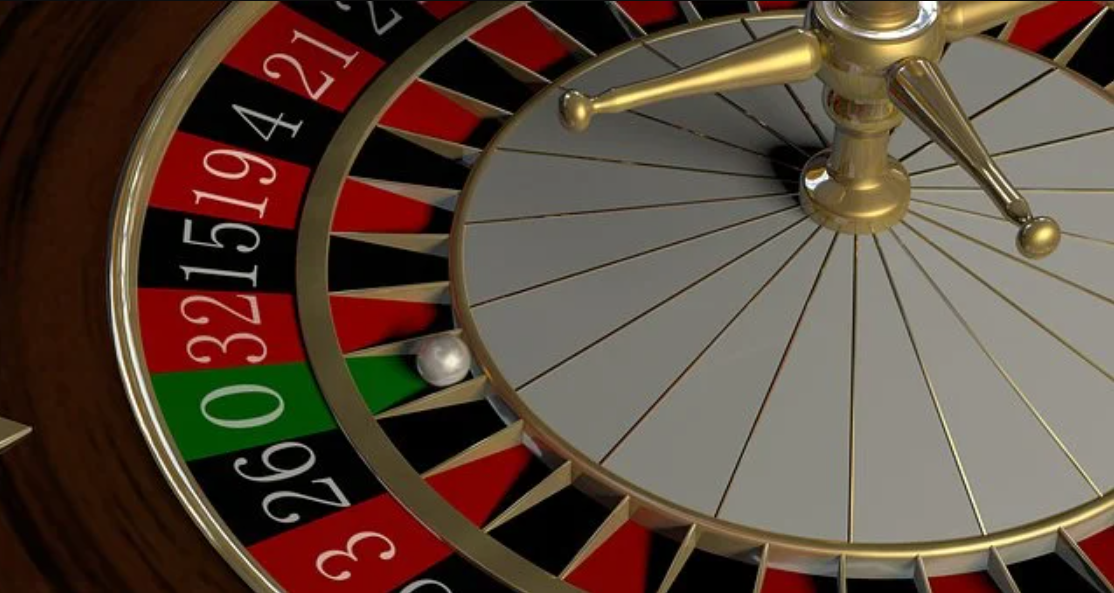
Roulette’s got a spinning wheel with numbered pockets and a ball that bounces around until it lands somewhere. You’re betting on where that ball ends up-specific numbers, groups of numbers, red or black, odd or even, whatever.
European roulette has 37 pockets numbered 0 through 36. American roulette adds a 00, giving it 38 pockets total. That extra pocket doubles the house edge from 2.7% to 5.26%. Always pick European roulette when you’ve got the choice.
Inside bets cover specific numbers or small groups. A straight-up bet on one number pays 35:1 but only wins about once every 37 spins. Split bets cover two numbers next to each other, street bets cover three-number rows, and it goes from there.
Outside bets cover bigger groups with smaller payouts. Red/black and odd/even pay even money and win roughly 48.6% of the time on European wheels. Dozens and columns pay 2:1 and cover 12 numbers each.
Betting systems like Martingale-where you double your bet after every loss-don’t beat the house edge. They can make sessions more interesting and help organize your betting, but they can’t change the basic math that favors the casino.
Past spins don’t predict future ones. The wheel doesn’t remember anything. If red hits five times in a row, black isn’t “due” next. Each spin has exactly the same odds as the one before it.
Live Dealer Games: Real People, Real Cards

Live dealer games stream actual human dealers from studios straight to your screen. You’re watching real cards getting shuffled and dealt, real roulette wheels spinning, all in real time. It combines the convenience of playing at home with the authenticity of a real casino.
You’ll find live versions of blackjack, roulette, baccarat, and various poker games. Table limits range from $1 for beginners all the way up to $10,000+ for high rollers.
You can interact through chat features. Type messages to the dealer (who might answer out loud) and chat with other players at your virtual table. This social element makes live games feel less lonely than playing against a computer.
Your internet connection really matters here. Slow or spotty connections cause lag, which gets incredibly frustrating when you’re trying to make quick decisions. Most live casinos recommend at least 4-5 Mbps for smooth gameplay.
Live games move slower than regular online ones. Each hand takes 60 to 90 seconds from start to finish because you’re waiting for an actual person to deal cards and move chips around. You can’t rapid-fire through hundreds of hands per hour like you can with computer blackjack.
Casino Poker Games That Aren’t Too Scary
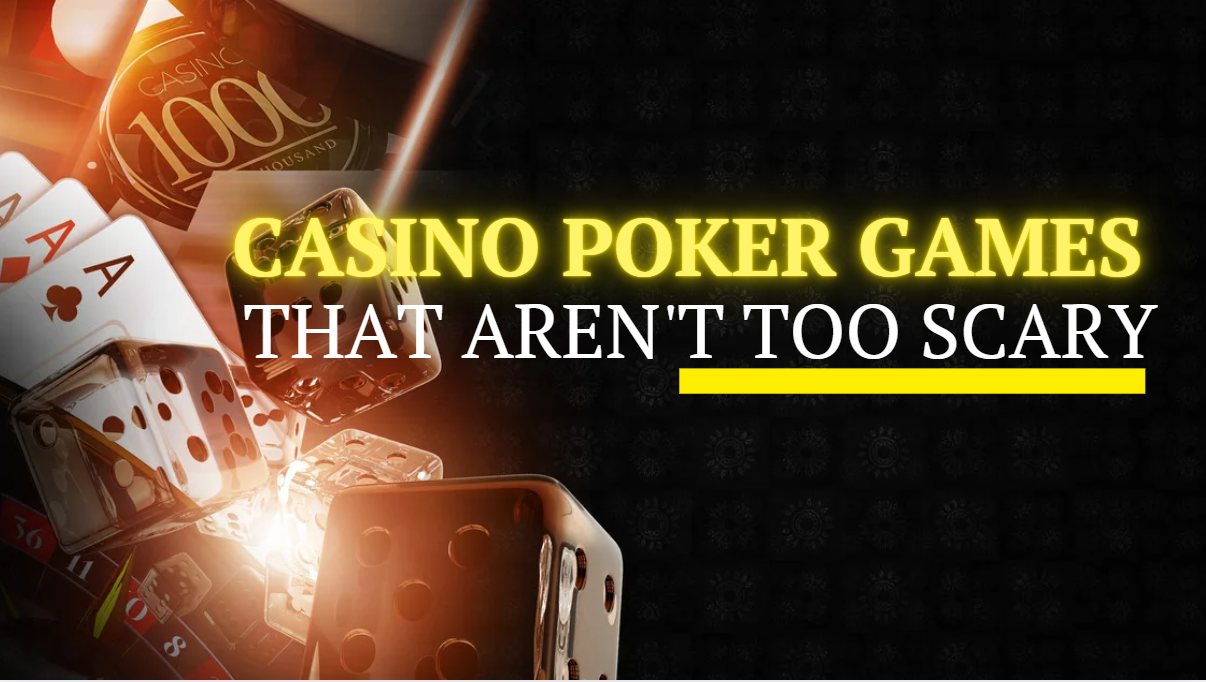
Casino poker is totally different from the tournament poker you see on ESPN. You’re playing against the house, not other players, which completely changes everything about strategy and odds.
Caribbean Stud deals you five cards and the dealer gets five cards. You make a bet, see one of the dealer’s cards, then decide whether to fold or keep playing. The house edge is around 5.2%, which makes it worse than blackjack but easier to learn.
Three Card Poker moves faster because you’re only dealing with three cards. You’re just trying to make a better three-card poker hand than the dealer. House edge averages about 3.4% on the main bet.
Video poker sits somewhere between slots and table games. Games like Jacks or Better can offer 99%+ return if you play perfectly. You get dealt five cards, choose which ones to keep, then get new cards to fill in your hand.
Paytables in video poker are critical. A “full pay” Jacks or Better machine pays 9 coins for a full house and 6 for a flush. Cheaper versions reduce these payouts, which kills your odds. Always check the paytable before putting money in.
Managing Your Money (The Part Nobody Likes Talking About)

Figure out your entertainment budget before you start playing. This needs to be money completely separate from rent, groceries, bills, or savings. If losing it would cause you actual financial problems, you can’t afford to gamble it.
Break your total budget into smaller session bankrolls. If you’ve got $200 for the month, split it into four $50 sessions instead of risking everything at once. One bad session won’t wipe you out this way.
Your bet size should match your bankroll. A decent rule is betting 1-2% of your total money per hand or spin. With $100, that means $1-2 bets, not $10-20 bets. This keeps you in the game long enough to actually have some fun.
Set win goals and loss limits before you start playing. Maybe you decide to quit if you double your money, or if you lose half your session bankroll. Actually sticking to these limits takes serious discipline, but it prevents you from making emotional decisions when you’re up big or down bad.
Never, ever chase losses by betting bigger or depositing more mid-session. This impulse destroys more bankrolls than bad luck could ever manage. If you hit your loss limit, walk away. Come back tomorrow with a clear head.
Bonuses: They’re Not Free Money
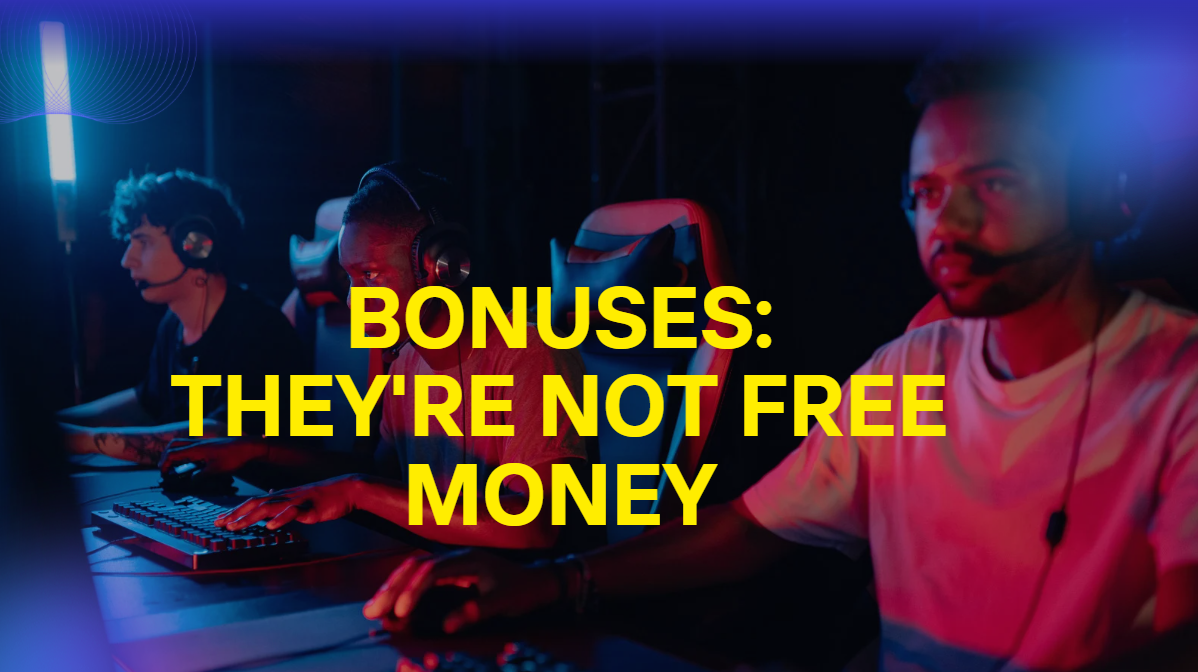
Match bonuses give you extra cash based on your deposit. A 100% match on $50 means you play with $100 total-your $50 plus their $50. Sounds amazing until you read what you have to do to actually withdraw any of it.
Wagering requirements force you to bet the bonus amount multiple times before cashing out. A 40x requirement on that $50 bonus means betting $2,000 total before you can withdraw. Most people never clear these requirements and end up losing their deposit trying.
Different games count differently toward requirements. Slots usually count 100%, but table games might only count 10% or not count at all. Playing $100 of blackjack might only count as $10 toward clearing your bonus.
Maximum bet rules apply while bonus money’s active. Even if you’ve got $500 sitting there, the terms might cap your bets at $5 per hand. Betting more than that forfeits your bonus and all the winnings from it.
Time limits create pressure. You might only have 7 to 30 days to meet wagering requirements before the bonus and any winnings just disappear. This pushes people into playing more or betting riskier than they planned.
Free spins aren’t usually free either. Winnings from free spins typically become bonus money with its own wagering requirements, not cash you can withdraw. Some casinos even cap free spin winnings at ridiculously low amounts like $20.
Staying Safe and Sane
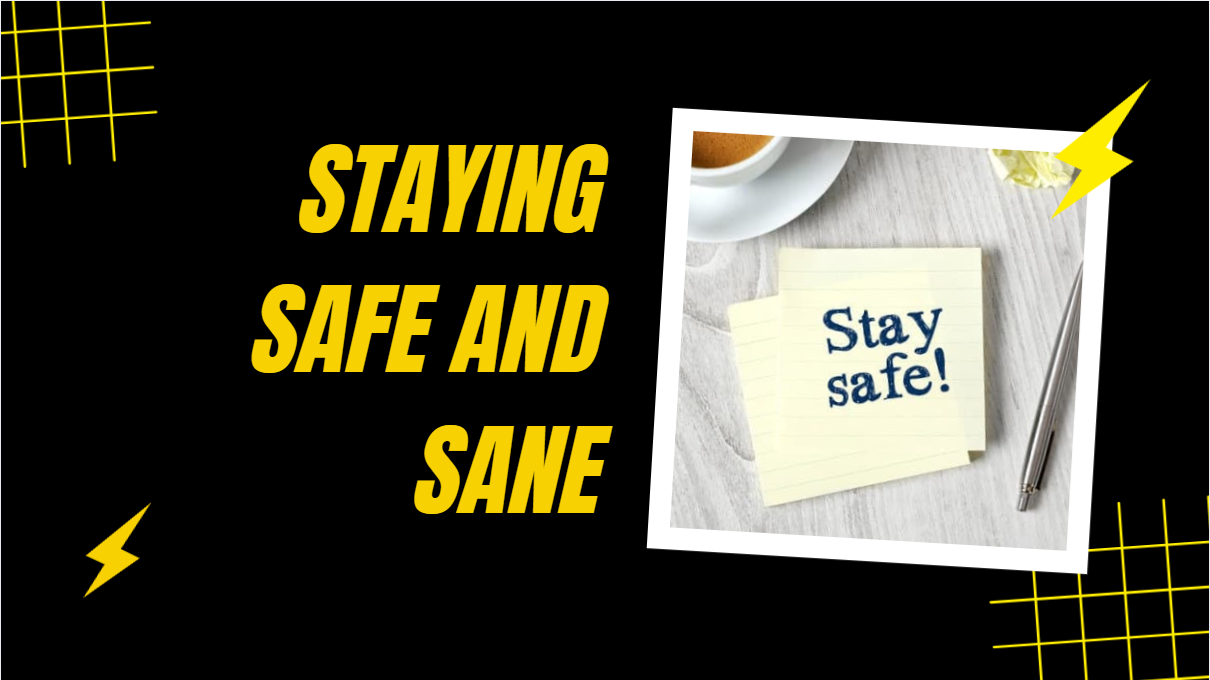
Self-exclusion tools let you ban yourself from gambling for set periods. If things get out of hand, good casinos offer 6-month, 1-year, or permanent lockouts. Services like GamStop can block you from every UK-licensed casino at once.
Reality checks are pop-ups that show you how long you’ve been playing. You can set these to appear every 30, 60, or 90 minutes with your session time and current win/loss. These breaks help because time gets really weird when you’re deep into playing.
Warning signs of problem gambling include chasing losses, lying about how much you’re gambling, using money meant for bills, or feeling anxious when you’re not playing. If any of this sounds familiar, reach out to Gamblers Anonymous or the National Council on Problem Gambling.
Gambling should be fun, not stressful or something you feel like you need to do. The second it becomes a way to solve money problems or escape from life, you’ve crossed a dangerous line. Casinos are entertainment, not income.
Mistakes That’ll Cost You
Playing games you don’t understand burns money fast. If you can’t explain the basic rules and strategy in a couple sentences, you’re not ready to bet real money on it. Stick with what you know or practice in free mode first.
Ignoring return rates and house edges leads you straight to the worst games. Why play American roulette with its 5.26% house edge when European roulette is 2.7%? Why touch Keno with its brutal 25-30% edge when video poker offers better than 99%?
Drinking and gambling is a terrible combination, just like drinking and everything else. Casinos love giving out free drinks because drunk people make worse decisions and bet more recklessly. Keep your head clear if you want your money to last.
Superstitions and betting “systems” accomplish nothing. Your lucky socks don’t matter. Betting your birthday numbers doesn’t help. Following hot and cold numbers is pointless. Random number generators don’t care about any of that, and past results don’t predict future ones.
Playing without breaks leads to mental fatigue and bad choices. Your concentration slips, you start making mistakes on basic strategy, and boredom pushes you into stupid high-risk bets just to feel something. Take breaks to stay sharp.
Look, online casinos are built to take your money over time. The house edge guarantees it-that’s just reality. But understanding how everything works, managing your bankroll carefully, and treating gambling as entertainment you’re paying for rather than a way to make money means you can enjoy yourself without financial disaster. Play smart, stay disciplined, and never bet money you actually need for something else.
